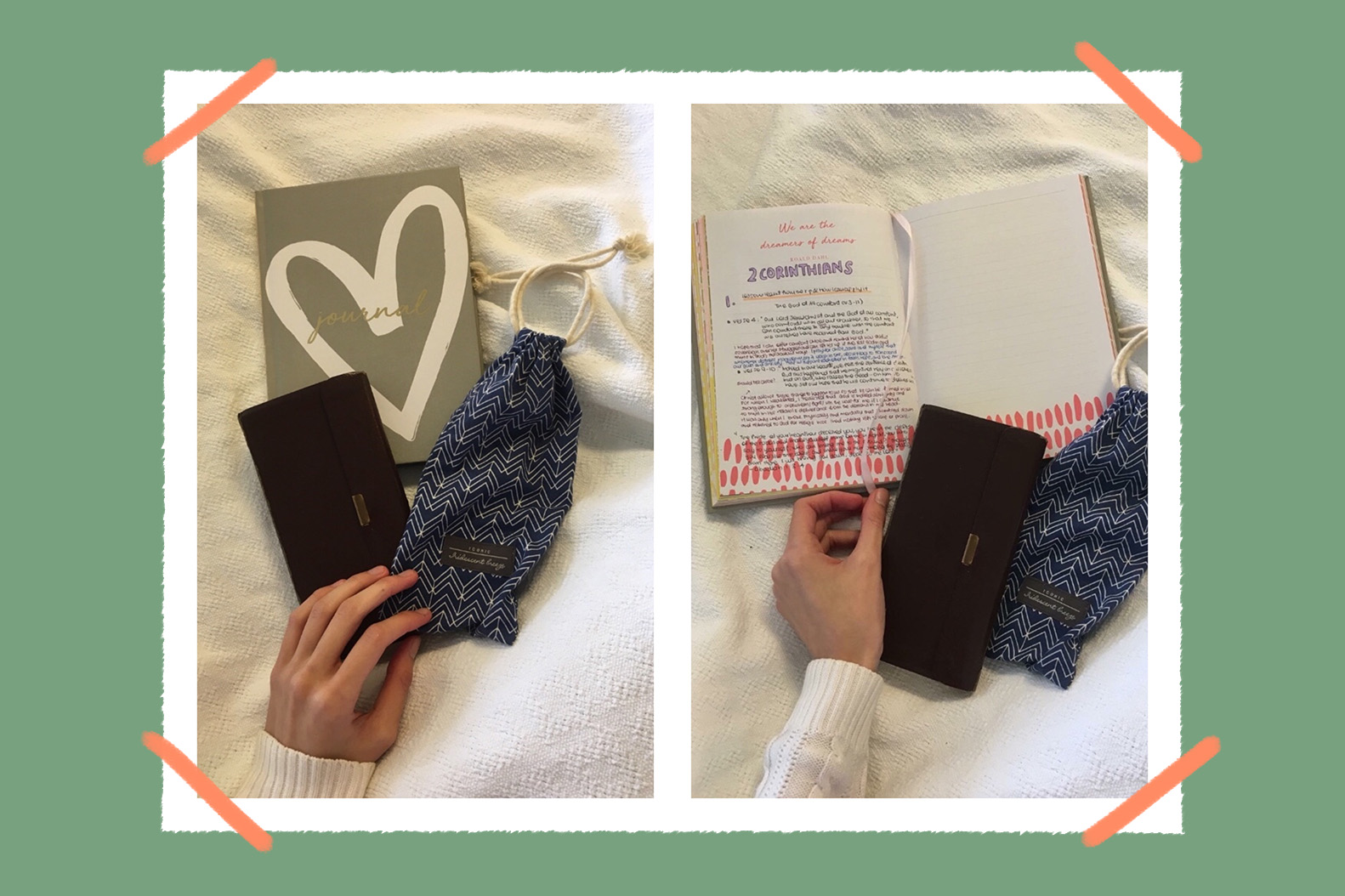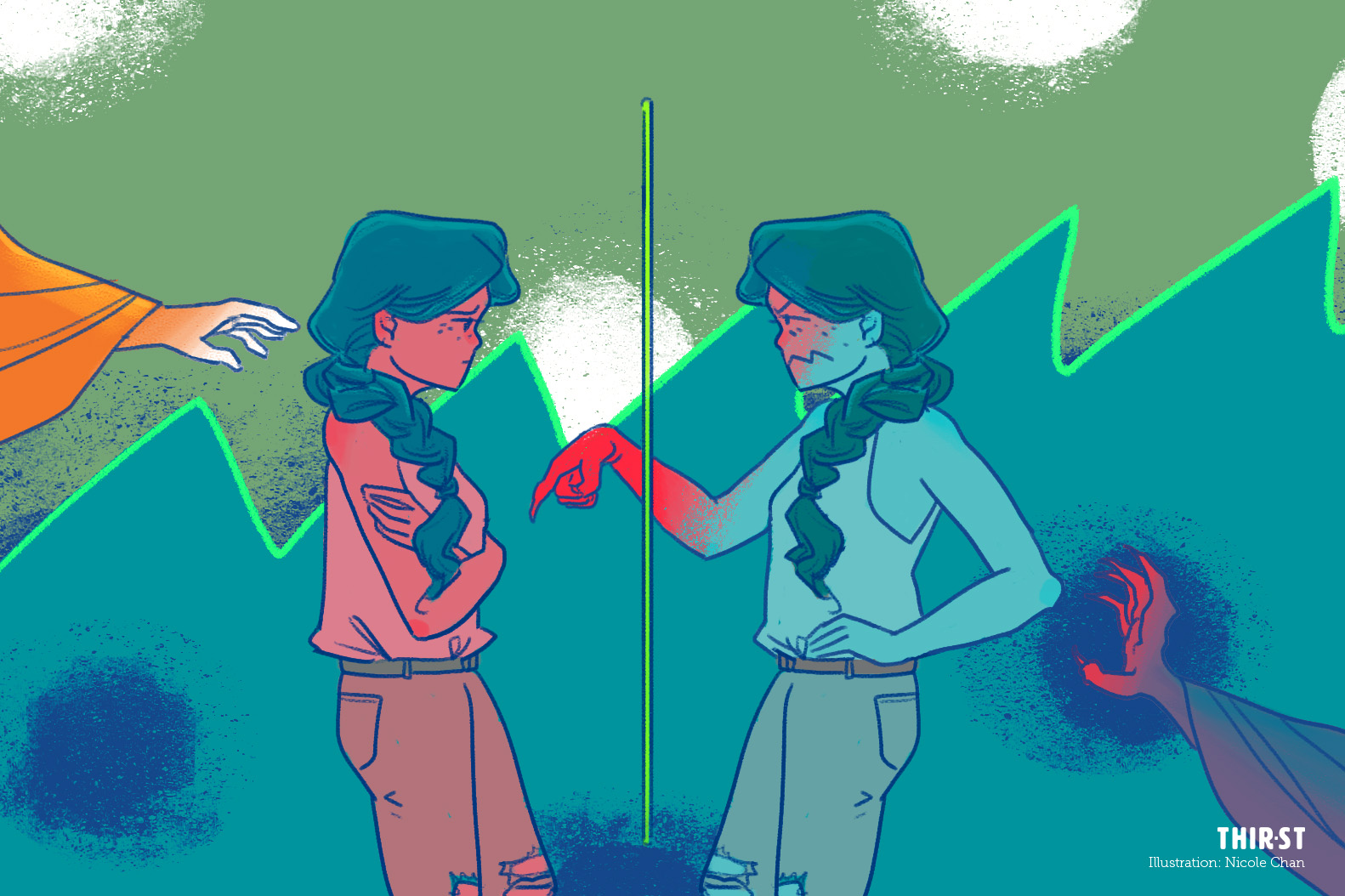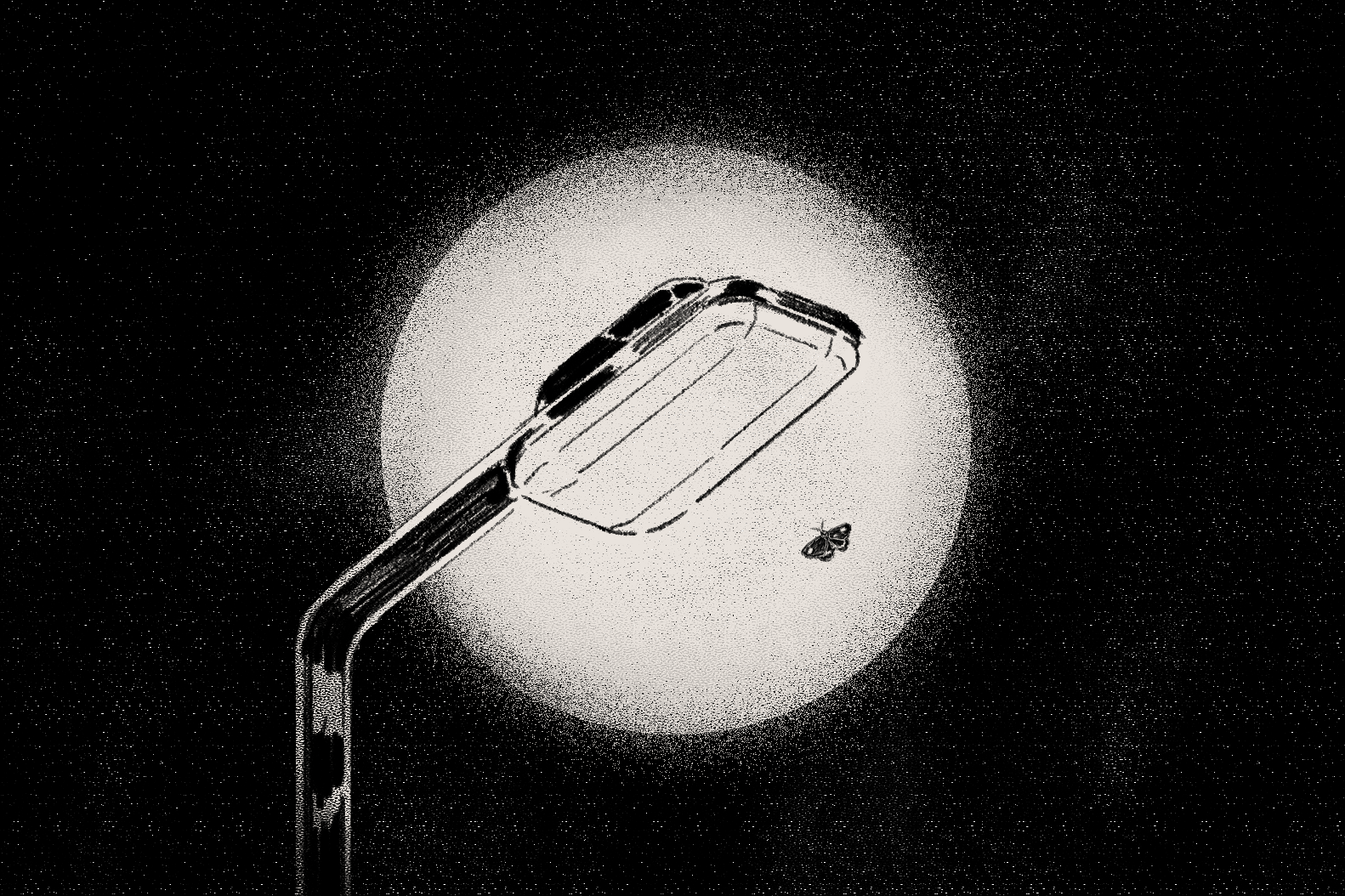In the thick of pubertal weight gain and pimples galore at the age of 12, I was ridden with shame about the way I looked.
My parents would scold me for refusing to enter stores to try on new clothes; however, they didn’t know that I was plagued with the anxiety of experiencing self-disgust should I chance upon a full-length mirror.
Compared to my sister, I felt like a physical disgrace. Despite my rebuttals that it was the inside that mattered, I was constantly reminded that my skin and teeth were “very bad”. Although these comments weren’t malicious, I couldn’t help but feel that I was born “wrong” and too ugly to be fixed.
By the age of 14, I was constantly consoling my mother, who suffers from Obsessive Compulsive Disorder (OCD). I had already been blaming God for a seemingly unfair childhood of being the “sacrificial lamb” (as my sister and mum put it) to neutralise the cold wars between my parents.
Under the pretext of a bruised self-esteem, the climax of family conflict catalysed my diagnosis of anorexia in 2012.

The years of 2014 to 2015 were the worst chapter of my life. Triggered by a classmate’s anorexia, I amped up my self-destructive behaviours to prove that I was sick enough to deserve help. As I became embroiled in the toxic recovery community on social media, I faced a slew of hurtful comments that fuelled my desire to self-destruct.
When I was forced to eat more than my mind permitted me to, I ended up playing with death in other ways – purging, cutting, and bruising. I begged others repeatedly to pray for my demise as I sincerely believed that I infected their lives with my existence.
Through all this, my helpless mother, teachers and friends tried to reach out to me with prayer and encouraging Bible verses. I hated them for trying to “sabotage’ my quest to end my life and blocked many of them from contacting me. I faced many highs and exhaustingly disheartening lows as I oscillated between recovery and relapse.
In 2017, I thought I had reached the peak of my mental health after leaving outpatient treatment and declaring that I could handle things my way. I worked, volunteered and initiated a social enterprise to encourage others who were struggling with eating disorders (ED).
However, as my ego grew, I erased Jesus from my life and claimed credit for all the victories others were praising me for. Naturally, my pride soon caught up with me and I retreated back to those familiar self-destructive coping mechanisms.

I firmly believe that everything happens for a reason, and meeting someone who had similar struggles was once such instance. Inspired by her testimony of how God delivered her, my heart slowly softened and let God in again.
In the midst of being threatened with formalisation under the Mental Health Act, where one is admitted for treatment, I was desperately trying to find “friction blocks” to prevent me from falling back down the trenches of mental hell. My new friend invited me to her campus’ outreach event, “Pursued”, which eventually instigated my move to her church.
Despite barely being integrated in the community then, I was immensely heartened to experience the love poured out from Jesus through His people. When my grandma passed away, two people from my new life group came down to her wake to pray for me and my family.
I couldn’t believe how sincere and intentional they were. In the weeks that passed, I began to internalise God’s evident salvation in my life. My illness had made me resentful and blind to the medical miracles and persistent protection He had provided over the years of me destroying the body He had blessed me with.
During a sermon, I began to tear as a pastor said: “I hope you never have to hear a loved one say that they would rather die than continue living.” My heart broke as I imagined the sheer heartache of God and my family that I had ignored so selfishly.
Despite feeling condemned by the world for the decisions I’d made, I felt (and still feel) God’s overwhelming grace and unconditional love.
It’s only in hindsight that I can see how relentless God was in pursuing my stubbornly prideful self. He pursued me even as I shut people out, unleashing an endless sea of persistent angels to pull me back to Him. He pursued me as I faced numerous obstacles, until I had no choice but to seek help in prayer. Above all, He pursued me by keeping me alive to realise all of this before it was too late.

Currently, I still struggle with surrendering full control of my ED to God. I still possess an irrational fear of the self-condemnation that usually comes as a package deal whenever I defy the voices that push me back to that lifestyle.
However, recently, I’ve been finding hope in every little conviction that God places in my heart – the details of how exactly He wants me to fight this in various scenarios when I’m tempted. Each night, I pray for Him to embolden me more each day as I try to spite my ED by eating more. I pray for the shame to be turned into an empowering battle cry against it.
Instead of being angry at the world for taking away my ED from me, with God now in my heart, I’m finally angry at it for inhibiting me from living the life that He has destined for me. Despite being fraught with overthinking and anxiety from time to time, I’m trying to choose God’s way over mine as much as I can because I know His way never fails.
And louder than the unbelief, I raise a Hallelujah.
The author’s name has been changed for confidentiality.
- How do we understand eating disorders and other mental conditions within our faith?
- Do you know anyone who struggles with an eating disorder?
- How can we support those who are struggling?
- What other forms of control can manifest in our lives?









